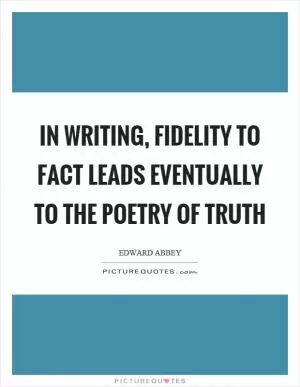
Love implies anger. The man who is angered by nothing cares about nothing

Love implies anger. The man who is angered by nothing cares about nothing
Edward Abbey, the renowned American author and environmentalist, was known for his passionate and often controversial views on nature, society, and politics. One of his most famous quotes, "Love implies anger. The man who is angered by nothing cares about nothing," encapsulates his belief that true love and passion for something or someone inevitably involves a sense of anger or frustration when that thing or person is threatened or mistreated.Abbey's love for the natural world was evident in his writings, particularly in his most famous work, "Desert Solitaire." In this book, Abbey describes his experiences as a park ranger in the desert wilderness of Utah, and his deep connection to the land and its inhabitants. He was fiercely protective of the desert landscape, and often expressed anger and outrage at the destruction and exploitation of the environment by humans.
For Abbey, love for the natural world was inseparable from anger at those who sought to exploit and destroy it. He believed that true love and passion for something required a willingness to fight for it, to defend it against those who would harm it. In his view, apathy and indifference were the antithesis of love – if one truly cared about something, they would inevitably feel anger when it was threatened.
Abbey's quote can also be applied to his views on society and politics. He was a vocal critic of consumerism, industrialization, and government policies that he believed were harmful to the environment and to human freedom. His anger at these injustices was born out of his love for the natural world and his belief in the importance of preserving it for future generations.












 Friendship Quotes
Friendship Quotes Love Quotes
Love Quotes Life Quotes
Life Quotes Funny Quotes
Funny Quotes Motivational Quotes
Motivational Quotes Inspirational Quotes
Inspirational Quotes